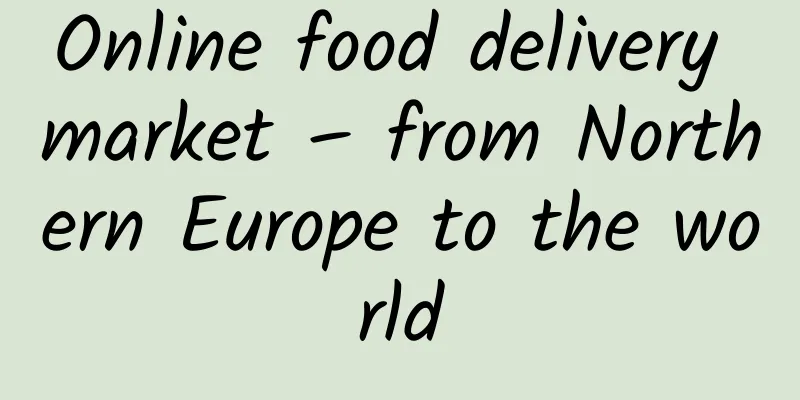Online food delivery market – from Northern Europe to the world

|
The online food delivery market in the Nordic countries has exploded during the coronavirus pandemic. As in other parts of the world, this growth has slowed as consumers returned to shopping in physical stores following the health crisis. However, the pandemic has led to the development of new online shopping habits. Consumers have become experienced in ordering fresh food and hot meals, delivered directly to their doorstep at the click of a button. As a result, online food delivery has become a mainstream practice. In 2023, the market was valued at $8 billion and is expected to exceed $12 billion by 2027. The online food delivery market is divided into two parts: grocery and food delivery. The former has higher annual revenue, while the latter has more users. In 2023, there were more than 10 million online food delivery users, while there were only 9 million grocery shoppers. This number is expected to rise steadily over the next few years. Number of users in the Nordic online food delivery market, by market segment, 2017-2027 (millions). Data source: Statista.com From Northern Europe to the world The growing popularity of food delivery apps is one of the main reasons behind these impressive figures. Apps allow users to easily order food using their mobile devices anytime and anywhere. Local player Wolt is the most popular food delivery app in the region. Since its founding in 2014 as a restaurant delivery platform, Wolt has gained significant traction in its home country of Finland and its northern neighbors. The Wolt app ranks first in Norway and Denmark, and second in Sweden. In 2022, American online food delivery giant DoorDash acquired Wolt. The merger is expected to promote further international growth, with plans to enter the Canadian, Australian and Icelandic markets. Other popular food delivery apps in the region include HelloFresh, Uber Eats, Bolt and Glovo. Leading food delivery apps in Finland by downloads in 2022. Data source: Statista.com The Boom and Bust of Grocery Stores The global online grocery market has grown exponentially during the pandemic, with investors pouring money into the fast-growing sector. Since the pandemic, the market has been struggling, with fewer funding rounds and plummeting valuations. Oda, a Norwegian grocery startup that recently lost its unicorn status, and Mathem, a Swedish online grocer, are among the businesses that have suffered in the recent market crunch. Most e-commerce segments have been affected as new challenges emerge in the Nordic market. Only time will tell how online grocers will fare during these uncertain times of market inflation and rising cost of living. Year-over-year percentage change in digital commerce revenue in the Nordic countries from Q3 2021 to Q4 2022. Data source: Statista.com |
<<: Savills: China's industrial logistics market in July 2023
Recommend
Is a plane crash in India considered news? But this time is different
According to reports from India Today and Indian ...
How to eat Cistanche deserticola
Cistanche is indeed a good tonic, especially for ...
The efficacy and function of tree leek
After thousands of years of sedimentation and acc...
Mars Exploration: Why Should Humans Conquer the Red Planet?
In the solar system, Mars, Mercury and Venus are ...
The efficacy and effects of tanshinone
Speaking of Salvia miltiorrhiza, I believe many m...
Why do we have to develop a hydrogen bomb, he said -
He is the recipient of the "Medal of the Rep...
Don't forget Bing Dwen Dwen's good friend Xue Rongrong! It's not that he's not popular, he just hasn't started working yet
With the opening of the 2022 Beijing Winter Olymp...
What are the herbs that can cure snake venom?
Snakes have their own habits, and there are very ...
The efficacy and function of orange root
In daily life, people are not only very familiar ...
Knowledge about American ginseng and Panax quinquefolius
We all know that ginseng is very effective in tre...
The efficacy and function of Solomon's
With the development of society and the close int...
The efficacy of American ginseng and astragalus soaked in water
American ginseng and astragalus are a very good c...
Table tennis AI reaches intermediate level! Is it no longer a human specialty to deal with the complex physical world?
Table tennis, known as China's "national...
The efficacy and function of white balsam pear branches and leaves
There are many common Chinese medicinal materials...
The efficacy and function of chrysanthemum beans
Speaking of chrysanthemum beans, many people know...









